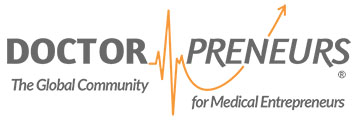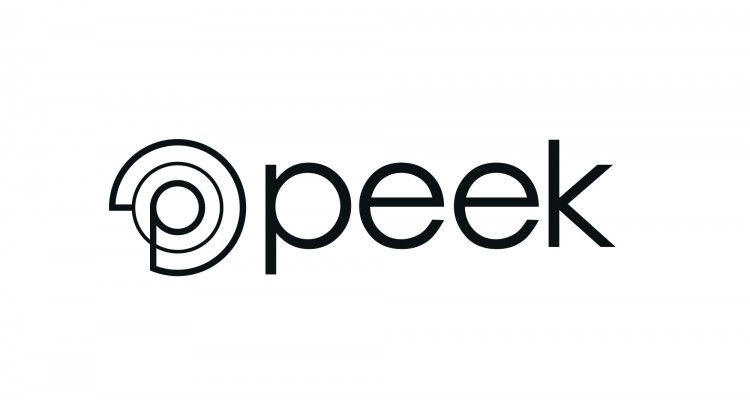
Ophthalmologist Andrew Bastawrous is Co-Founder and CEO of Peek, bringing together people and organisations to achieve Vision and Health for Everyone.
He is also Assistant Professor in International Eye Health at the London School of Hygiene & Tropical Medicine. He previously worked as an ophthalmologist in the NHS and overseas.
In your TED talk, you spoke of moving to Kenya with a young family to follow your vision of curing preventable blindness. No small undertaking! Nevertheless, you persevered. You must have known it could be done. How many of the answers did you have before setting out on your journey?
I knew it was worth trying, not that it could definitely be done. I’d say I had very few answers but lots and lots of questions. We moved to Kenya to set up 100 temporary eye clinics as part of a large research project to better understand the eye health needs of the population and provide a service at the same time. Bringing expensive, bulky, computer equipment to improve the quality of diagnosis and treatment was necessary for a research study but wasn’t going to be able to reach the majority of people affected by problems with their vision. That’s how the idea for Peek was born – by looking around us and trying to figure out how we could work with what was already there to solve this huge, but almost completely avoidable problem. Needless to say, it wasn’t always easy, and I couldn’t have done it without the support I had, especially from my wife. There were many difficult times, but those close to you keep you strong when they believe in what it is you’re doing.
Peek is a mobile health technology that brings about affordable health care on a potentially global scale.What part will m-health play in the future of our healthcare?
Undoubtably m-health will play an increasingly prominent role in global healthcare, but I think we need to be cautious about some of the hype in this area. M-health platforms, apps and devices are proliferating quickly and in many directions, and although it’s great to see so much innovation in the field, there’s also currently a lack of robust evidence in many areas. That’s why Peek has taken an “evidence first” approach from the outset – we owe it to the people who use our eye tests and devices to ensure that our products work at least as well as the older systems that they’re built on. We’re continually reviewing and building the evidence base for our products and systems, and using the insights we gain from this to improve them and better meet the needs of the people who use them.
M-health is an opportunity to amplify current attempts at improving population health. It also carries the risk of amplifying practices that are harmful to health so we should be cautious about assuming that making healthcare digital will improve care. It certainly has great potential but only when it is integrated into health systems and services. It also needs strong local leadership who are able to use the efficiencies created and information generated to improve practice, evolve and improve services and systems.
We will succeed in tackling many of our greatest health issues when we understand compassion, not simply by deploying technology.
How were Peek’s apps and hardware received by the communities in Kenya?
Something I’ve learned from my mentors and my own research is the importance of listening to the people who are affected by your research. Peek simply wouldn’t have worked if we hadn’t been prepared to listen to the people who used it and understand their needs. For example, when we tested our vision test app, Peek Acuity, for school screening in Kenya, we found that although the eye testing itself worked well, we weren’t initially seeing any improvements in the number of children who went on to receive glasses or treatment for eye problems. So we talked to the teachers, local health care workers and other people involved in screening, and they pointed out that the child isn’t the person who decides to seek treatment and neither is the teacher. In fact, it’s the parent who ultimately decides whether to send their child for treatment, and when they do, there’s a complex system of healthcare they need to navigate. So we started following up school screening with personalised referral cards and SMS (text) messages for parents, as well as providing schools with regular updates on how many of their pupils had been treated. The result was three times more children being referred for treatment. We should never forget that personalised care involves all the complex dynamics of social interaction. We have to integrate our devices and systems into a community, and this takes much longer to design and successfully implement than a simple device or app.
Peek Vision Ltd is a company owned by the The Peek Vision Foundation, a UK registered charity. Profits generated by the Company are gifted back to the Foundation. Will we see Peek Vision commercialising one day?
The answer depends on the definition of “commercialisation”. If you mean the process bringing our products and services (solutions) to the general market then the answer is yes, we have already done this making Peek Acuity and Peek Retina available worldwide. If, however by “commercialisation” you mean will we bringing things to market primarily for financial gain then the answer is no. That is different to us saying we don’t wish to become sustainable. Our primary driver in all that we do is to create positive social impact. Our strategy and prioritisation is based on what can we do that creates the most impact, and secondarily how can we ensure we derive income from these activities to remain sustainable.
We are exploring innovative models of public-private financing which we hope will offer a new way for evidence-based development to take place sustainably, and at scale. We are in the fortunate position to have incredible supporters such as the Queen Elizabeth Diamond Jubilee Trust which gives us the time to thoughtfully build for the future without compromising our ethos.
PeekSim – part of the Peek Acuity app- allows patients and users to see how their eyesight is affected compared with normal vision. How do you see personalised healthcare evolving and integrating with healthcare and how may doctors play a role?
It is important healthcare is personal. Decision-making can be really complicated; if people are given too much choice this can cause decision paralysis. Depending on the structure of healthcare in place, the patient isn’t necessarily the person who has the power of decision. For someone who’s blind, they may look to their spouse, parents or children. Ultimately, patients and their carers need to be empowered to make well-informed decisions about their health in the context of their broader social circumstances. Doctors and other healthcare professionals have a critical role to play in that.
What was it like being both a doctor and co-founder of your company Peek?
It was a difficult balancing act – I was also doing a PhD and had responsibilities as a Clinical Lecturer at the London School of Hygiene & Tropical Medicine. I have a young family too (two children) and I was at high risk of doing many things badly. I decided to leave my role as an eye surgeon so that I could commit myself fully to my family, establishing Peek and continuing to teach and do research in international eye care.

